Jewellery Making for Beginners: Top 5 Questions
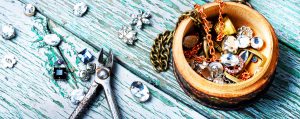 Are you just starting out with basic jewellery making techniques and want to get your questions answered? You’ve come to the right place! We’ve broken down the answers to some of our most commonly asked questions about jewellery making for beginners.
Are you just starting out with basic jewellery making techniques and want to get your questions answered? You’ve come to the right place! We’ve broken down the answers to some of our most commonly asked questions about jewellery making for beginners.
In our YouTube video, professional jeweller Janet Royle answers five common questions about jewellery making for beginners. Watch the video below and build a basic understanding of jewellery making, so that you can improve your know-how when it comes to making unique jewellery creations.
1. What’s the difference between hard and soft wire?
The hardness of jewellery making wire crops up as one of the most commonly asked questions we hear. What is soft wire, half hard wire and full hard wire?
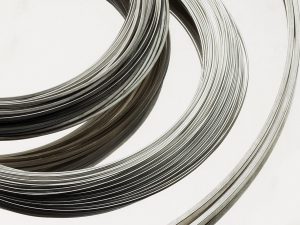
We’ve broken down the differences between hard and soft jewellery making wire below, so that you know which is which, and more importantly, which wire you need to be using.
| Type of wire | Features | Commonly used for |
| Dead soft, or soft, wire | Very little or no resistance, making it very pliable | Works well for making curves and spirals in jewellery |
| Half hard wire | Malleable | Great for making wire-wrapped jewellery |
| Full hard wire | Lots of resistance, making it difficult to bend. Will be very brittle. | Best for broach clasps |
2. How to use a tumbler, or barrelling unit
A tumbler, or barreling unit, is used in jewellery making for polishing up work to give it a professional finish. It can take between 30 minutes and 1 hour to complete the process.
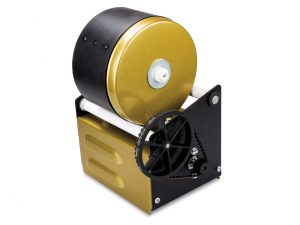
You’ll need to combine your barreling compound with water, and then pour into the tumbler. Pop the jewellery you’d like to clean in as well, and turn on to polish.
Don’t forget to read our guide to barrel polishing to learn the full process of using a tumbler for polishing metal with Cooksongold.
3. What is solder paste used for?
Solder paste is helpful for doing those small, fiddly soldering jobs in jewellery making, that involves jump rings or attaching small chains to your piece of jewellery. Avoid using it for soldering large, wide areas in bigger jewellery making projects because it’s not strong enough. The best part is, there’s no soldering flux required because the flux is already built into the paste.
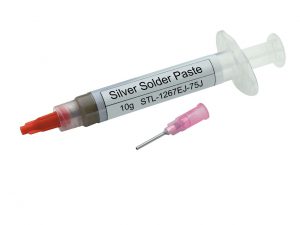
Once you’re ready to apply your solder paste to your metal jewellery, use a soldering syringe to slowly apply the paste where needed. The solder will then help to securely hold your work in place.
4. What thickness wire to make jump rings?
Making jump rings for your next creation, but you’re not sure which thickness of wire you should choose? Professional jeweller Janet Royle recommends that the usual size is between 0.8-0.9mm. For a thick, chunky necklace, choose a 1.2mm wire. You can hammer and texture the wire afterwards to your liking.
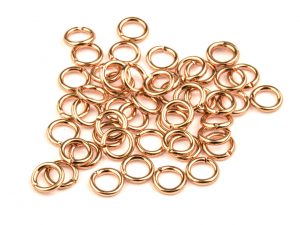
For smaller, thinner pieces, opt for 0.5mm jewellery making wire. Keep in mind though that this would need soldering to have strength to keep in place, and the smaller the wire, the trickier it is to solder!
5. How does an ultrasonic jewellery cleaner work?
An ultrasonic jewellery cleaner is a machine that jewellery makers use to clean their jewellery.
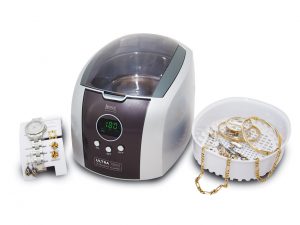
It uses high frequency ultrasound waves to pull any unwanted chemicals away from your jewellery piece. Discover more about the technicalities of how an ultrasonic cleaner works in our dedicated blog post.
Have you discovered our range of Ultrasonic Jewellery Cleaners?
If you’d like more expert advice about basic jewellery making techniques, head to the Beginner’s Guides section of Cooksongold’s blog, The Bench. Alternatively, if you’re ready to start creating a piece of handmade jewellery, you can start building up your collection of jewellery tools and supplies.
The post Jewellery Making for Beginners: Top 5 Questions appeared first on .
source https://jewelryexchangedallas.com/blog/jewellery-making-for-beginners-top-5-questions/
source https://jewelryexchangedallas.blogspot.com/2019/03/jewellery-making-for-beginners-top-5.html
Comments
Post a Comment